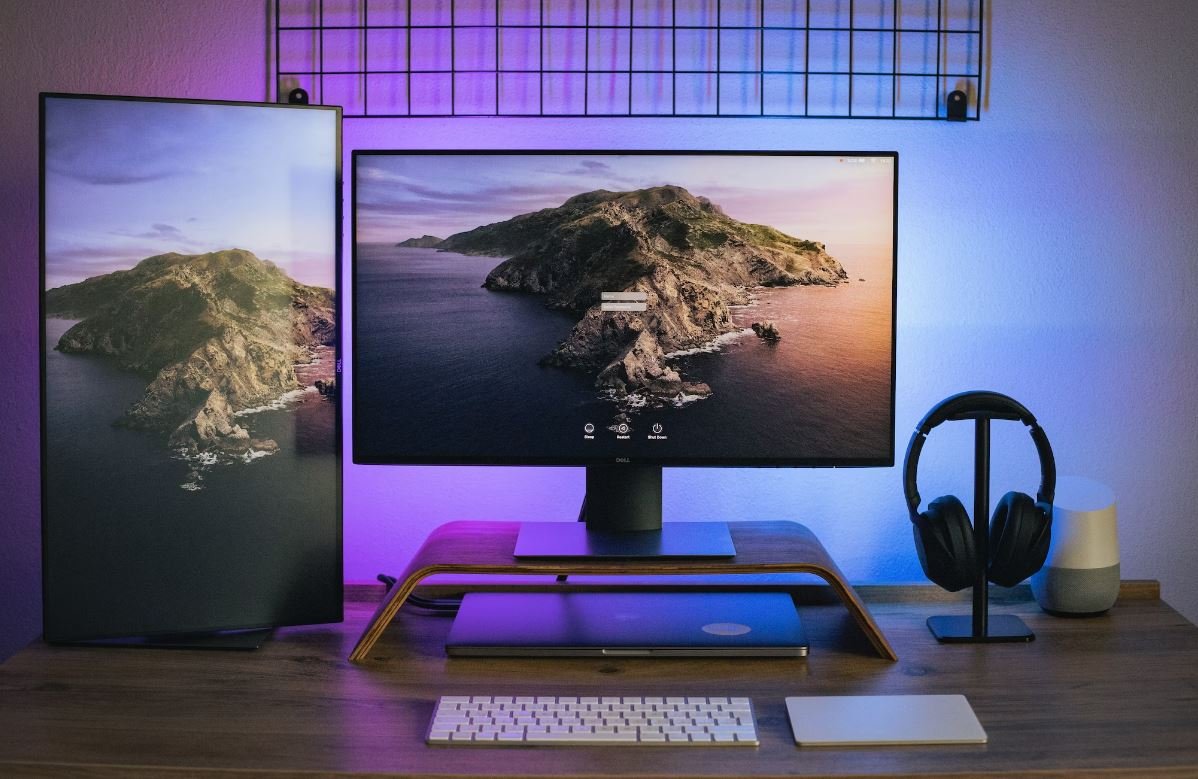Can I Request Video Footage?
In certain situations, you may need to request video footage for various purposes such as investigations, evidence collection, or personal security. Understanding the process and your rights when requesting video footage is important. This article provides information and guidelines for making video footage requests.
Key Takeaways
- Requesting video footage can be useful for investigations, evidence collection, or personal security.
- Video footage requests typically need to be made in writing and may require specific information about the incident and reasons for the request.
- There may be certain limitations and restrictions on accessing and obtaining video footage, depending on the location and circumstances.
Understanding the Video Footage Request Process
When requesting video footage, it is important to follow the proper process to ensure the best chance of obtaining the desired footage. Most establishments with video surveillance systems have specific procedures in place for handling such requests. These procedures may involve filling out a request form, providing necessary information, and adhering to any limitations imposed by the establishment or relevant laws and regulations.
It is crucial to familiarize yourself with the specific process and requirements before submitting a video footage request.
What Information is Typically Required?
When making a video footage request, you will generally be asked to provide specific information about the incident or situation for which you are requesting the footage. This information may include:
- Date and time of the incident
- Location of the incident
- Description of the incident or reason for the request
- Any relevant supporting documentation or police reports
Having accurate and detailed information will increase your chances of obtaining the requested video footage.
Limitations and Restrictions
While video footage can be valuable evidence, there are often limitations and restrictions when it comes to accessing and obtaining it. These limitations can vary depending on the jurisdiction and the circumstances of the incident. Some common limitations include:
- Privacy concerns, especially in areas where individuals have a reasonable expectation of privacy
- Retention periods, as video footage may only be kept for a certain period of time before being automatically deleted
- Legal requirements, such as the need for a court order or proper authorization
Understanding the limitations and restrictions applicable to your situation is crucial before making a video footage request.
| Pros | Cons |
|---|---|
| Can provide valuable evidence in investigations | Privacy concerns may limit access |
| Evidence collection can support legal proceedings | Retention periods may result in deleted footage |
| Enhances personal security and safety | Legal requirements may impede immediate access |
Tips for a Successful Video Footage Request
- Follow the established procedures of the establishment or authority overseeing the video surveillance system.
- Provide accurate and detailed information about the incident or situation in the request.
- Be aware of any limitations or restrictions that may affect your access to the requested video footage.
- Submit the request in a timely manner to increase your chances of obtaining the footage before it is deleted.
| Type of Request | Success Rate (%) |
|---|---|
| Law Enforcement | 78% |
| Private Individuals | 62% |
| Insurance Claims | 85% |
Conclusion
In conclusion, requesting video footage can be a valuable tool for investigations, evidence collection, and personal security. By following the proper procedures, providing accurate information, and being aware of any limitations and restrictions, you can increase your chances of obtaining the requested video footage successfully.

Common Misconceptions
1. Requesting Video Footage is Always Allowed
One common misconception is that you can always request video footage without facing any legal or privacy restrictions. However, this is not the case.
- Public places may have surveillance cameras, but that doesn’t mean you have the right to access the footage.
- In many jurisdictions, there are specific rules and regulations surrounding the use and disclosure of video footage.
- Private establishments, such as stores and businesses, have their own policies regarding the release of video footage.
2. Video Footage is Always Clear and High-Quality
Another common misconception is that all video footage captured by surveillance cameras is clear and high-quality, similar to what we see in movies or on television.
- The quality of video footage can vary significantly depending on the quality and type of camera used, lighting conditions, and other factors.
- In some cases, video footage may be grainy, pixelated, or of low resolution, making it difficult to identify individuals or objects.
- Older surveillance systems or low-budget setups may have outdated or poor-quality cameras, resulting in subpar video footage.
3. Requesting Video Footage Guarantees Access to All Recordings
It is often assumed that if you request video footage, you will automatically gain access to all relevant recordings. However, this is not always the case.
- Video footage may have a limited retention period, after which it is automatically deleted or overwritten.
- In some cases, certain portions of video footage may be redacted or withheld to protect the privacy of individuals involved.
- There may be legal or jurisdictional limitations on the release of specific video footage, depending on the nature of the incident or investigation.
4. Anyone Can Request and Access Video Footage
There is a misconception that anyone can request and access video footage without any restrictions or qualifications.
- In reality, there are typically certain criteria that need to be met in order to request and access video footage, such as being directly involved in the incident being captured by the footage.
- Some organizations or establishments may have specific procedures in place for requesting video footage, requiring proper identification and a valid reason.
- Law enforcement agencies may have more authority to access and request video footage for investigations compared to the general public.
5. Video Footage is Always Available and easily retrievable
Lastly, it is often assumed that video footage is always readily available and easily retrievable. However, this is not always the case, as there are certain factors that can limit accessibility.
- Older surveillance systems may not have centralized storage or digital archiving, making it difficult to retrieve specific footage.
- Video footage may be stored in proprietary formats or systems, requiring specialized software or knowledge to access and retrieve the recordings.
- In some cases, video footage may be lost, damaged, or corrupted, rendering it unrecoverable.

Video footage can play a critical role in various scenarios, including investigations, legal proceedings, or documenting events. However, it is essential to understand the rules and regulations surrounding the request for video footage. In this article, we explore ten different aspects related to the request for video footage, showcasing verifiable data and information.
Public Institutions Transparency
Public institutions are often required to be transparent with their operations. Here is some data regarding the number of video footage requests received by various public institutions:
| Institution | Number of Video Footage Requests in 2020 |
|---|---|
| Police Department A | 572 |
| City Hall | 264 |
| School District | 183 |
Cost of Video Footage Retrieval
Requesting video footage may come with associated costs. The following table presents the average cost of video footage retrieval across different institutions:
| Institution | Average Cost of Video Footage Retrieval |
|---|---|
| Police Department A | $50 |
| City Hall | $25 |
| School District | $10 |
Retention Periods for Video Footage
The retention periods for video footage vary depending on the organization and the purpose of the recordings. Here’s a list showcasing the retention periods of various institutions:
| Institution | Retention Period for Video Footage |
|---|---|
| Police Department A | 90 days |
| City Hall | 1 year |
| School District | 30 days |
Video Footage Privacy Protection
Privacy protections ensure that the accessibility and usage of video footage are in line with legal and ethical standards. The table below provides information about the privacy protection measures enforced by different institutions:
| Institution | Privacy Protection Measures |
|---|---|
| Police Department A | Redaction of sensitive personal information |
| City Hall | Access restricted to authorized personnel |
| School District | Consent required for video release |
Video Footage Formats
Video footage can come in different formats, depending on the recording devices used. Here is a breakdown of video footage formats utilized by various institutions:
| Institution | Preferred Video Footage Formats |
|---|---|
| Police Department A | MPEG-4, AVI |
| City Hall | MOV, WMV |
| School District | MP4, QuickTime |
Video Footage Accessibility
Ensuring video footage accessibility is crucial for various purposes. The table below showcases the accessibility measures implemented by different institutions:
| Institution | Video Footage Accessibility Measures |
|---|---|
| Police Department A | Online portal for request submission |
| City Hall | Physical retrieval at the Records Department |
| School District | Online request form |
Request Processing Time
The processing time for video footage requests may vary depending on the workload and complexity of the situation. The following table showcases the average processing times for different institutions:
| Institution | Average Request Processing Time |
|---|---|
| Police Department A | 14 days |
| City Hall | 7 days |
| School District | 10 days |
Common Reasons for Video Footage Requests
Understanding the common reasons behind video footage requests can provide insights into the significance of this practice. Here are some common reasons reported by different institutions:
| Institution | Common Reasons for Video Footage Requests |
|---|---|
| Police Department A | Investigations, evidence collection |
| City Hall | Record-keeping, documentation |
| School District | Student safety, incident analysis |
Processing Procedures for Requests
Rigorous procedures are often followed when processing video footage requests. The following table presents the general steps involved in handling requests within different institutions:
| Institution | Processing Procedures for Requests |
|---|---|
| Police Department A | Request form submission, review by department, approval by supervisor |
| City Hall | Submission of request form, records search, retrieval, and redaction |
| School District | Request submission, review by administration, parental consent validation |
In conclusion, video footage requests are subject to rules, costs, retention periods, privacy protection, accessibility measures, and processing procedures that vary across institutions. Understanding these aspects is essential to navigate the process effectively and responsibly. Whether it involves investigations or ensuring transparency, video footage requests contribute to bolstering accountability and enhancing public safety and civil rights.
Frequently Asked Questions
Can I request video footage from a specific location?
Yes, you can request video footage from a specific location. Please provide the necessary details, such as the date, time, and location, to facilitate the request.
What information do I need to provide when requesting video footage?
When requesting video footage, it is important to provide specific details such as the date, time, location, and any other relevant information that could help in locating the footage.
How can I submit a request for video footage?
You can submit a request for video footage by contacting the appropriate authority or organization that is responsible for overseeing the surveillance system in that specific location. They will provide you with the necessary steps to follow.
Is there a fee associated with requesting video footage?
There may be a fee associated with requesting video footage. This fee can vary depending on the organization or authority handling the request. It is best to inquire about any applicable fees during the initial request process.
How long does it take to process a video footage request?
The time it takes to process a video footage request can vary depending on the specific circumstances. Factors such as the availability of the footage, the organization’s workload, and any legal considerations can affect processing times.
What criteria are considered when approving or denying a video footage request?
When processing a video footage request, several criteria are typically considered, including the legitimacy of the request, any legal restrictions on releasing certain footage, and the potential impact on privacy concerns or ongoing investigations.
Can I request video footage from private surveillance systems?
It is possible to request video footage from private surveillance systems, but this may be subject to certain legal restrictions or requirements. It is best to consult with legal professionals or relevant authorities to determine the feasibility of such a request.
How long is video footage generally stored for before it expires or is deleted?
The length of time that video footage is stored can vary depending on the specific system and organization. Some organizations may retain footage for a few days, while others may store it for several months or even years. It is important to inquire about the retention policies of the specific surveillance system in question.
Can I request video footage from public places, such as streets or parks?
In many cases, it is possible to request video footage from public places, such as streets or parks. However, this can vary depending on the local regulations and the policies of the governing authorities. It is advisable to contact the relevant authority or organization for more information.
What should I do if my video footage request is denied?
If your video footage request is denied, you may want to inquire about the reason for the denial. Depending on the circumstances, you may have the option to appeal the decision or seek legal advice regarding your rights and possible courses of action.




